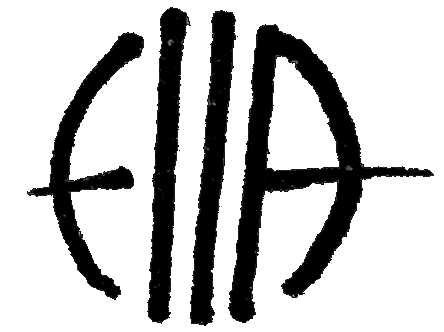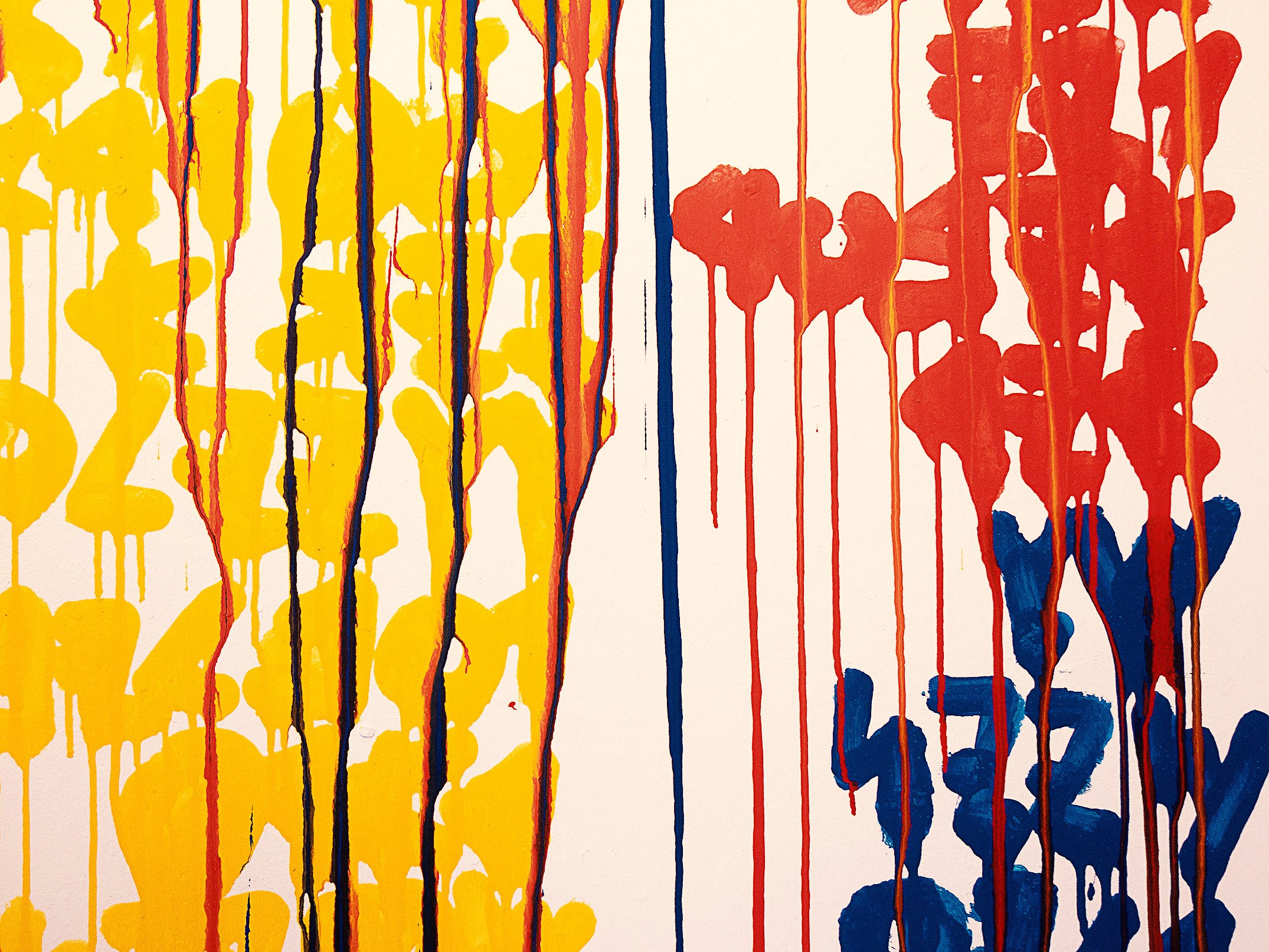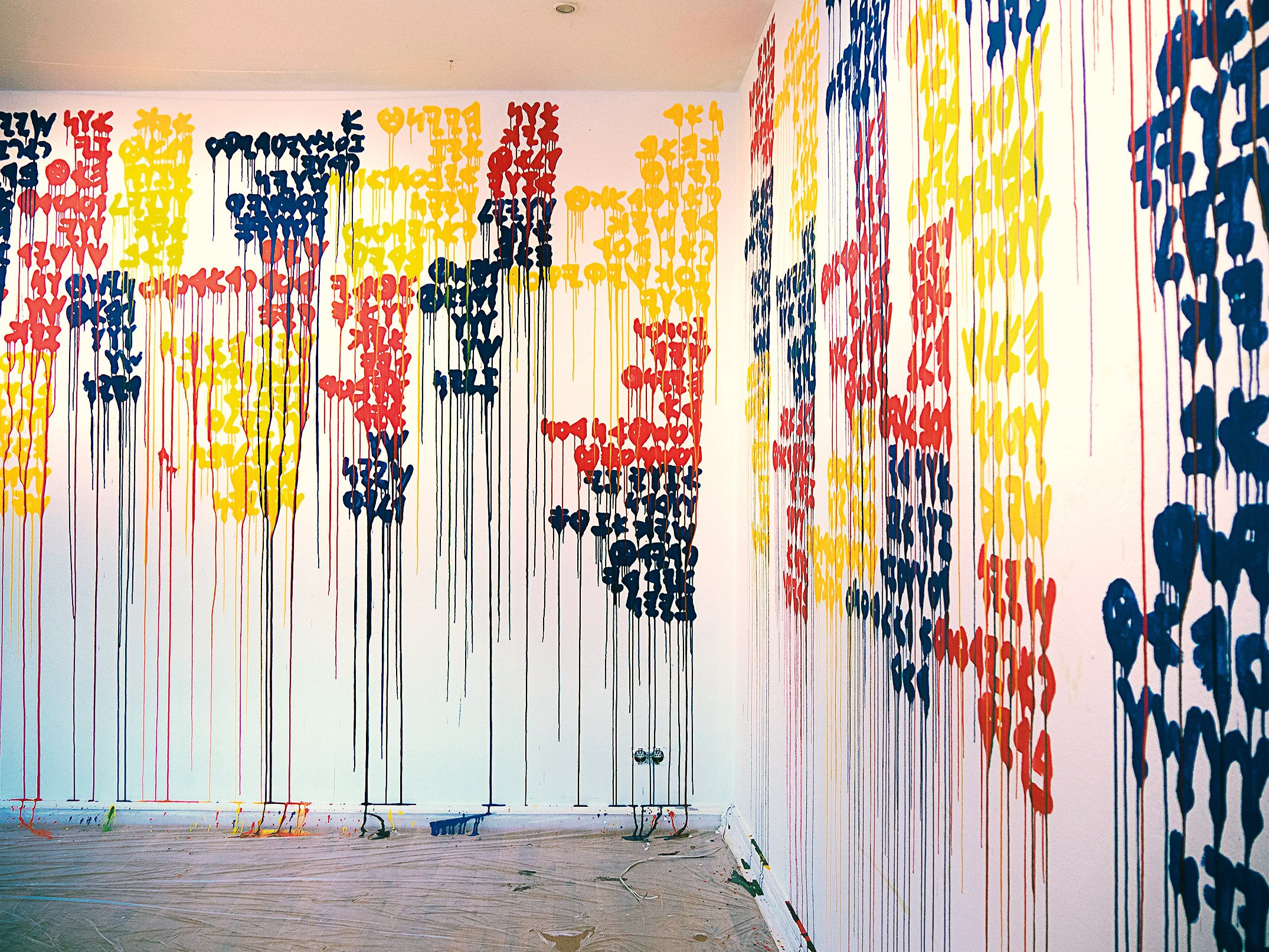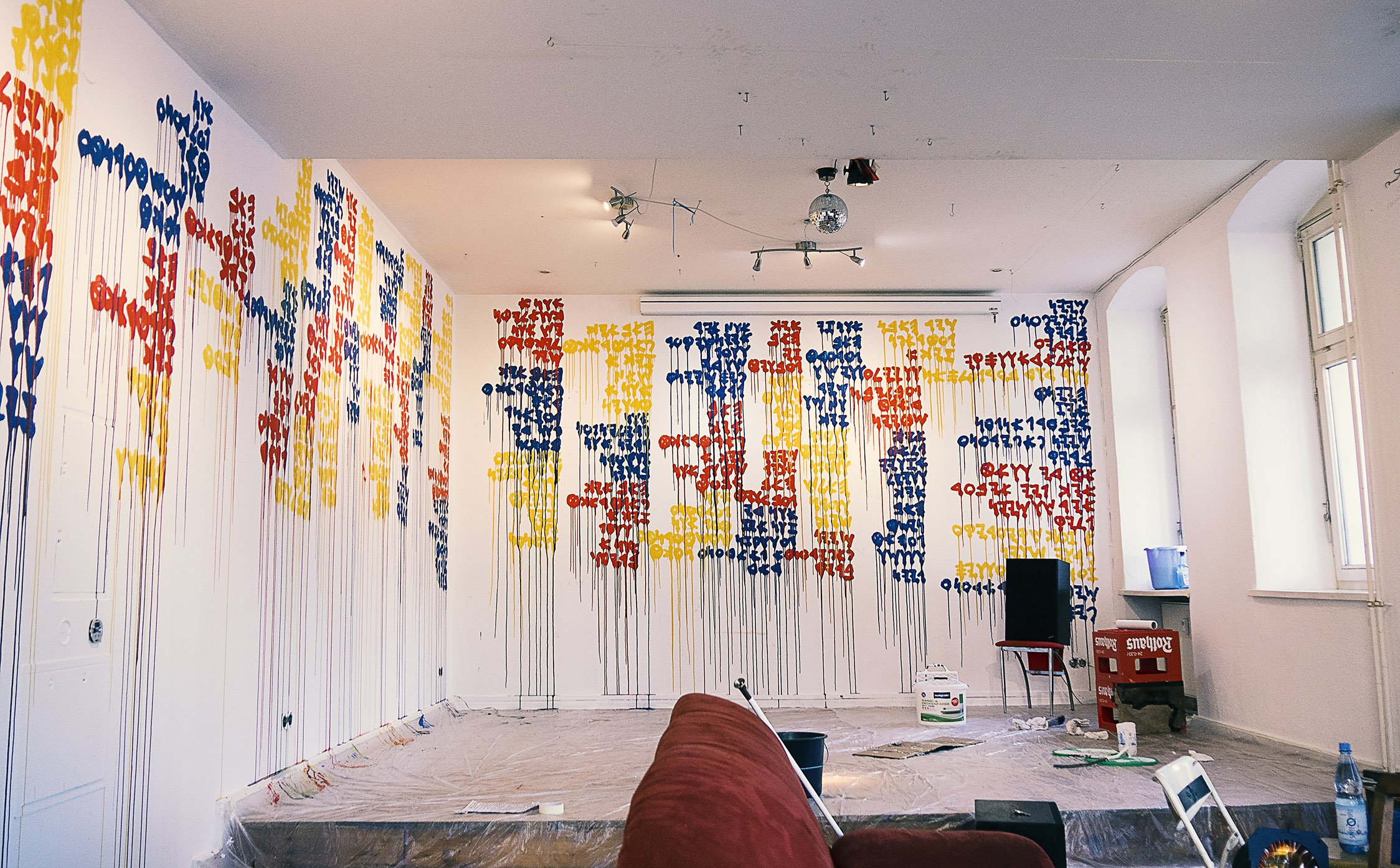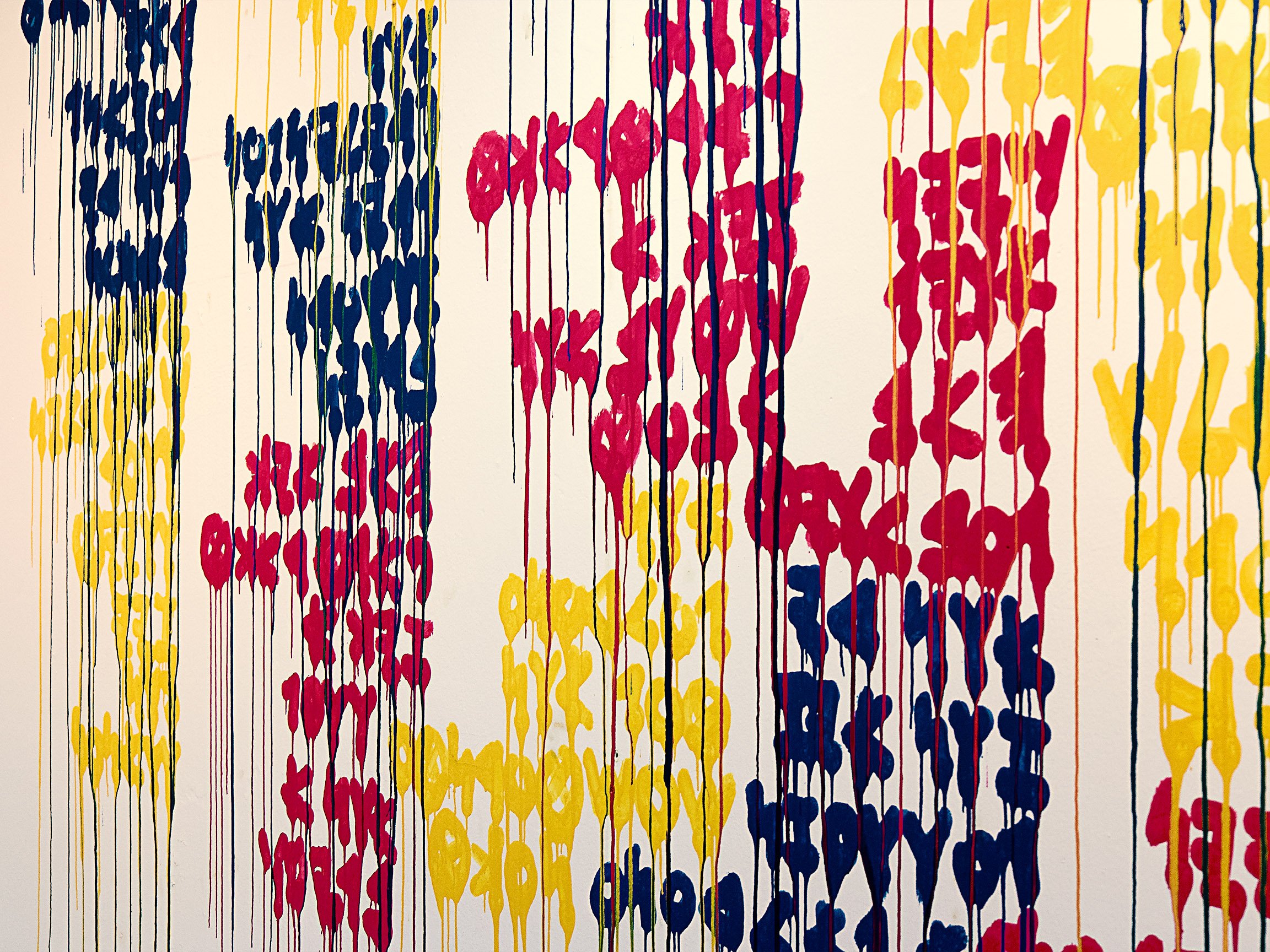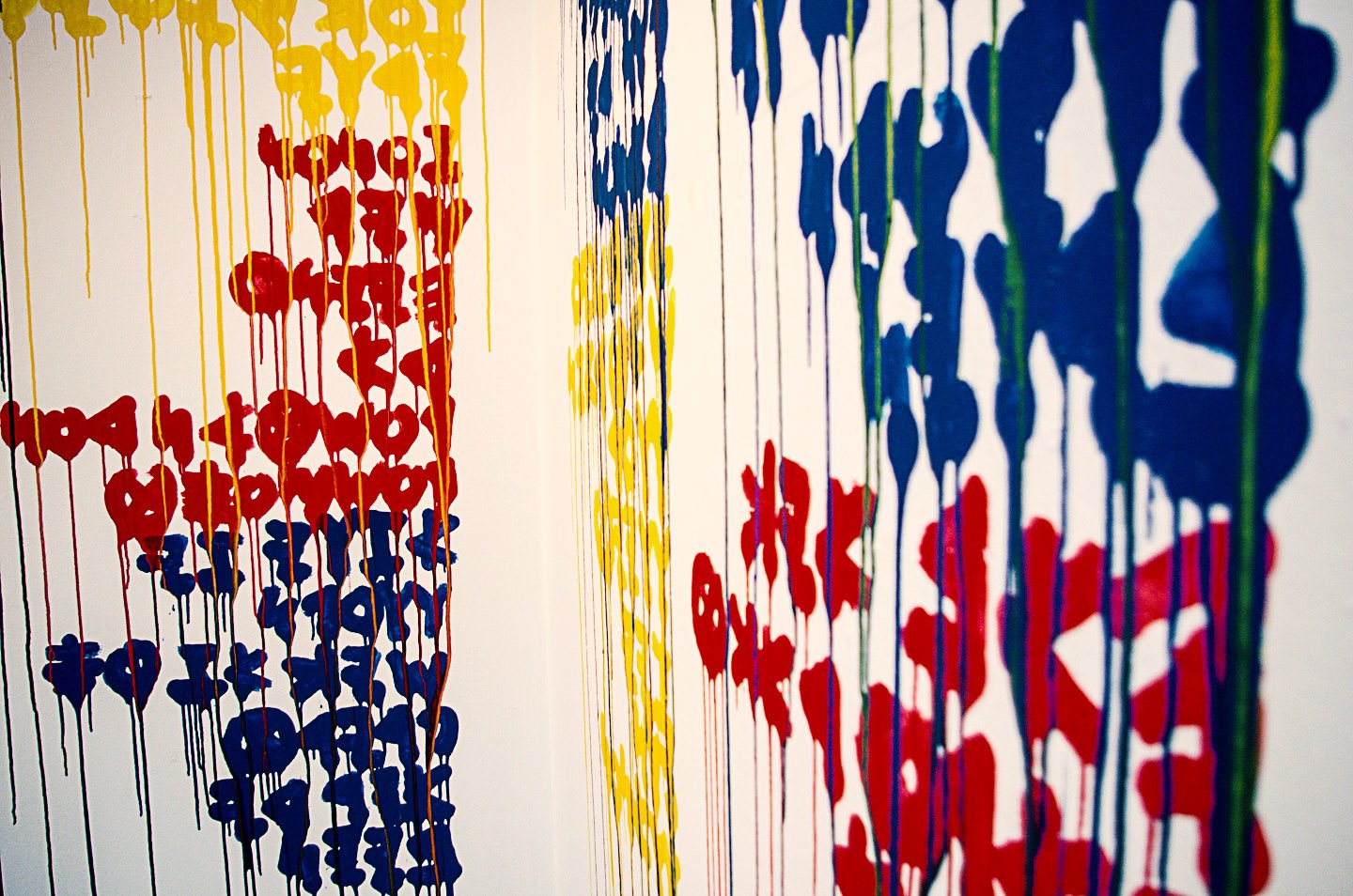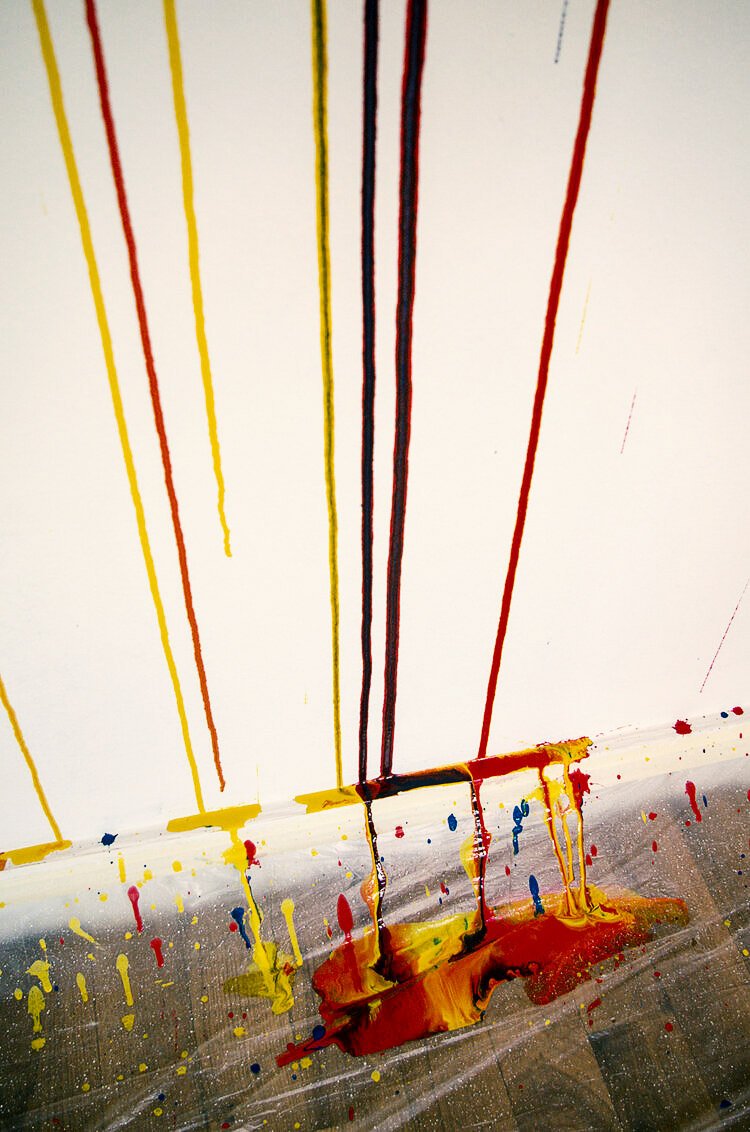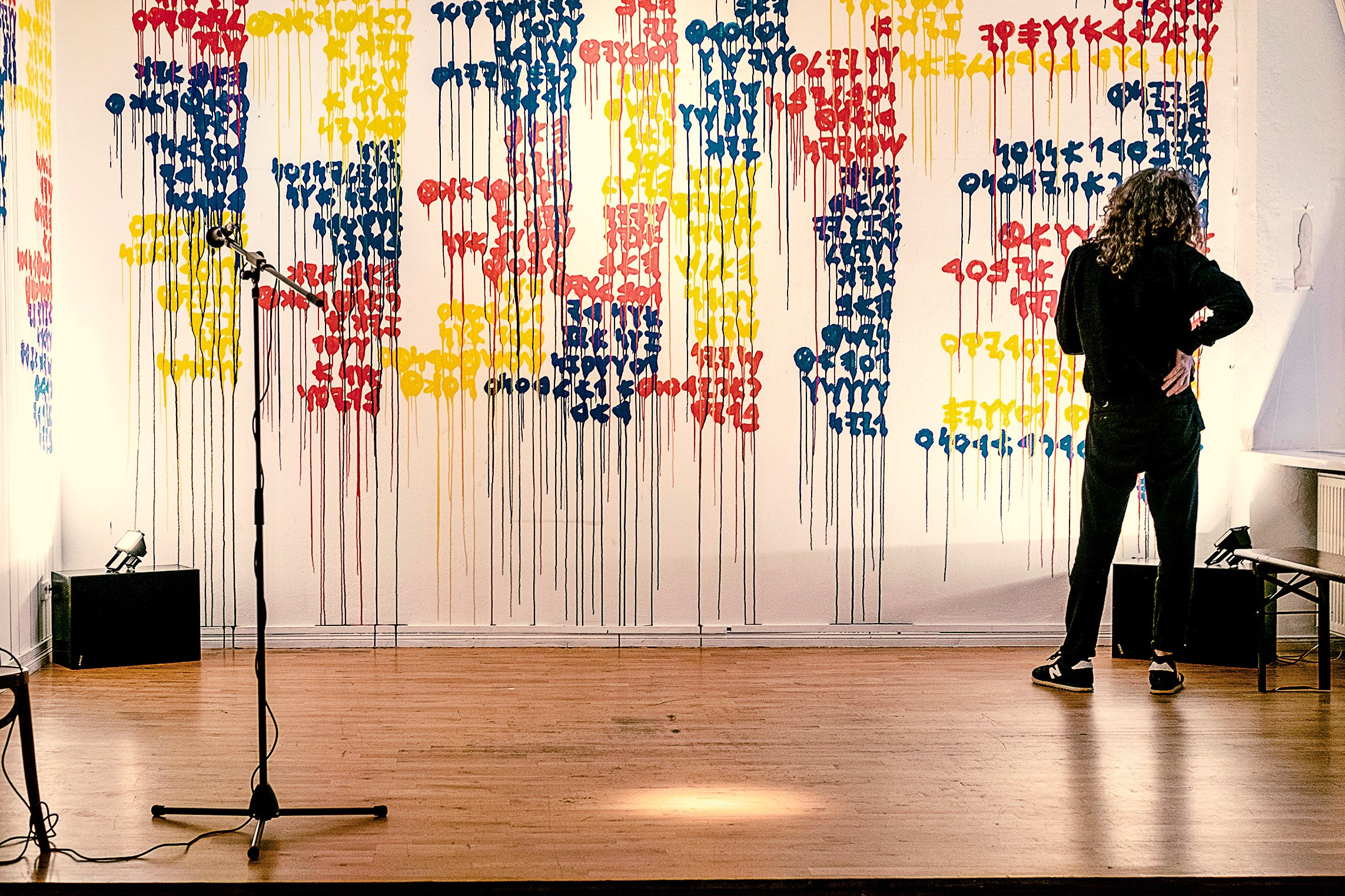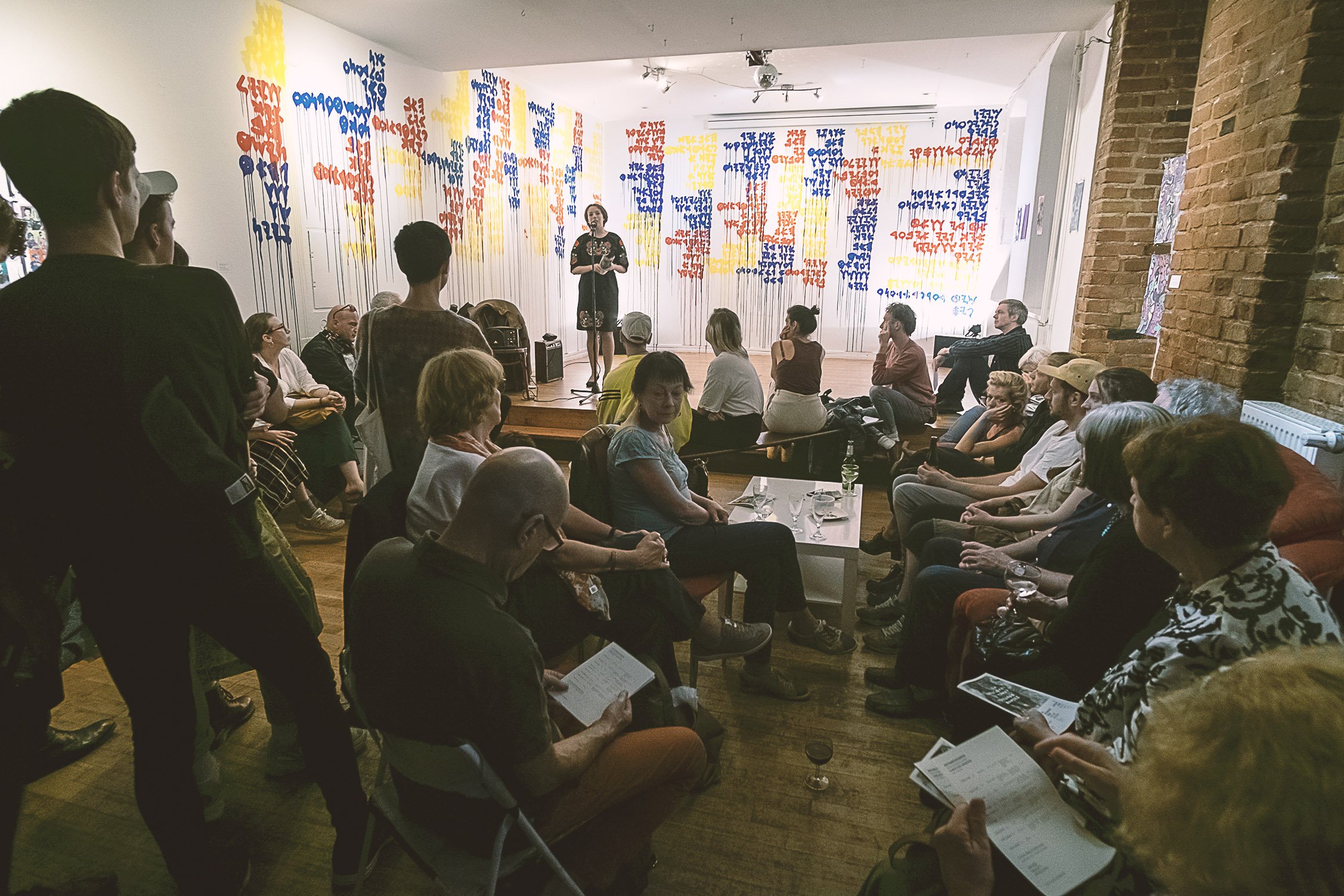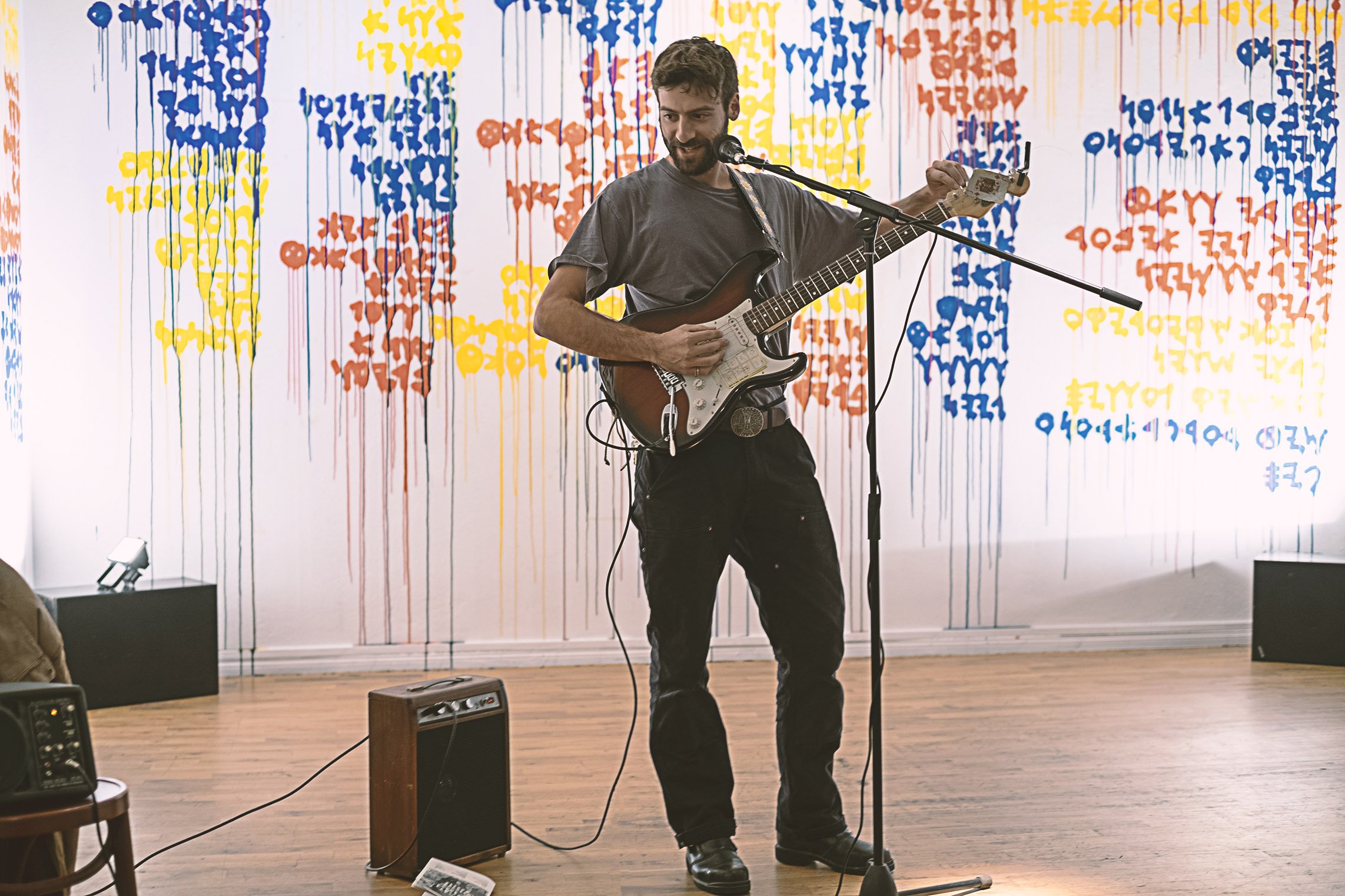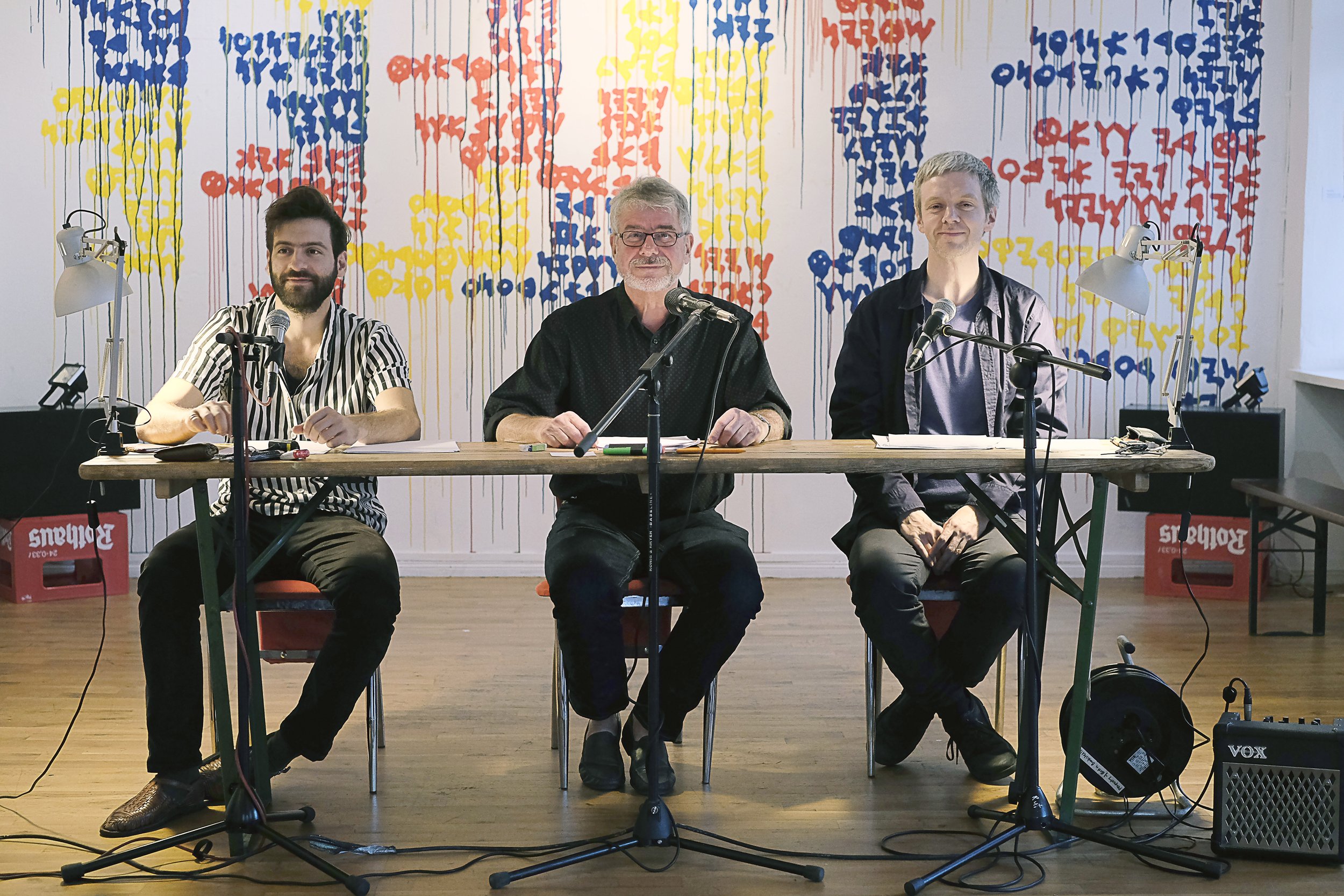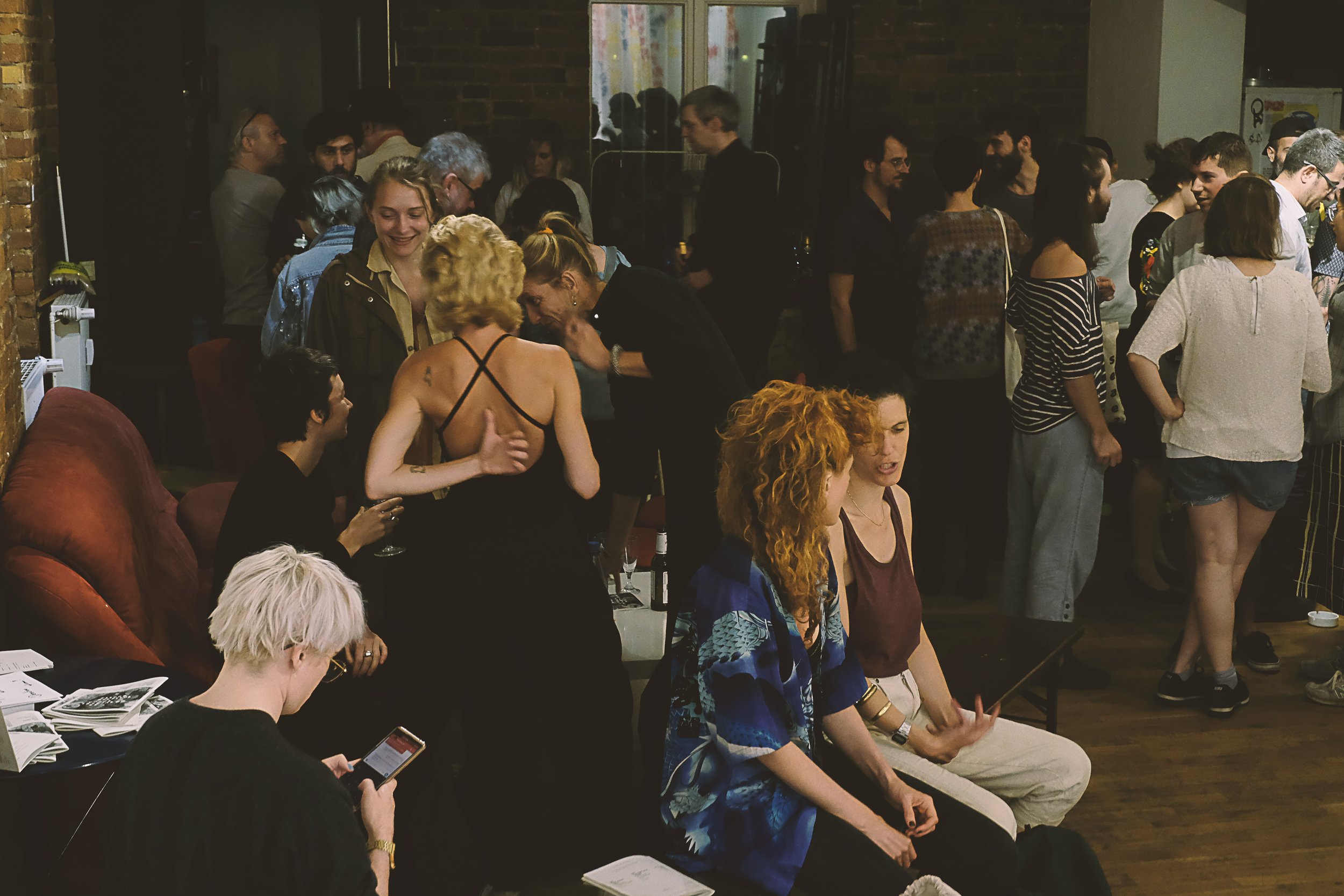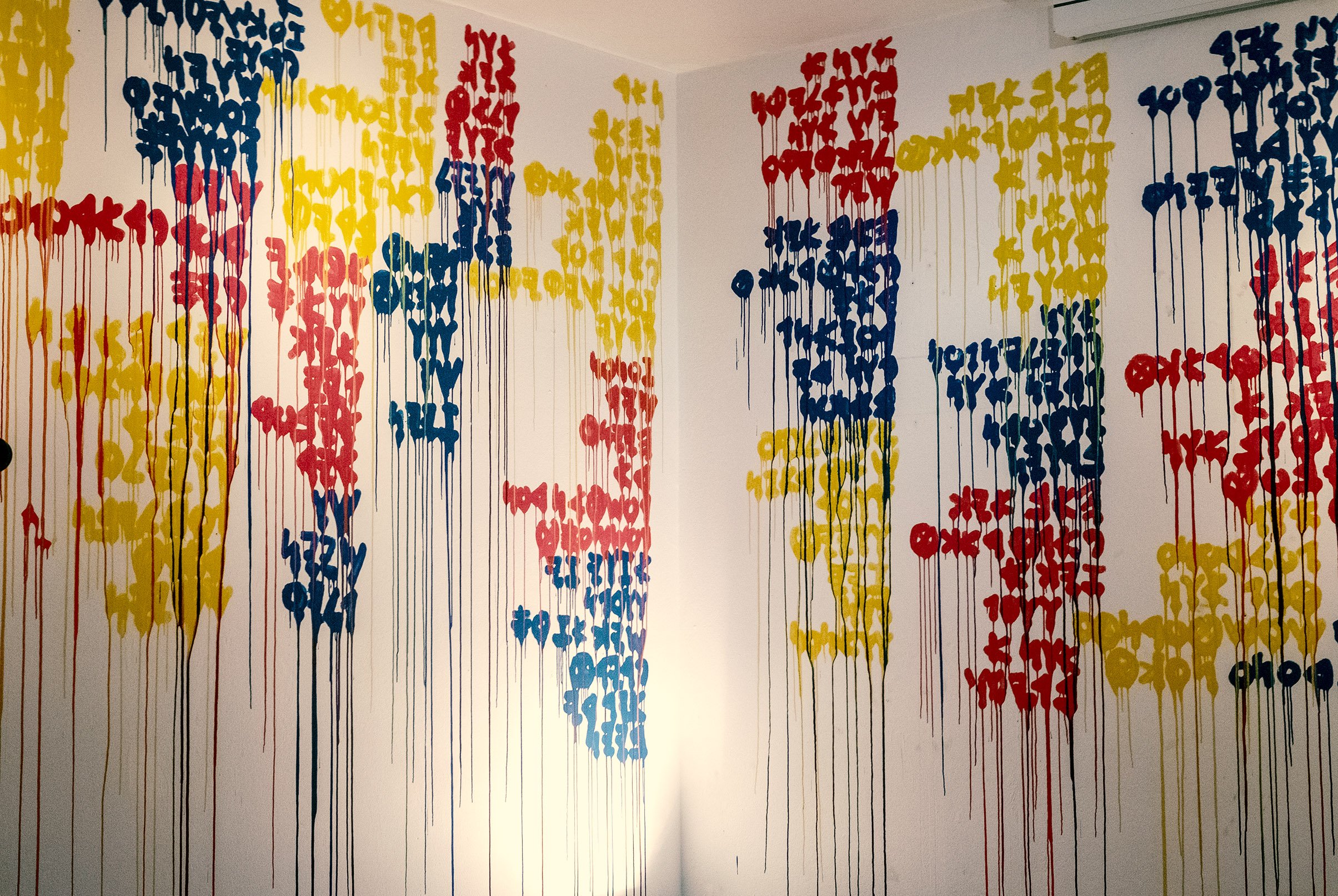Kadia Molodovsky emerged as a leading poet in the Yiddish literary world. She became a widely recognized figure in Yiddish poetry during the twentieth century. Molodovsky's journey involved multiple relocations, from her shtetl in Belarus to Warsaw, Odessa, Kiev, New York City, and lastly to Tel Aviv. The poem "My Paper Bridge," dedicated to Dovid Bergelson, revolves around a journey that may suggest the process of forsaking the past and envisioning a more promising future elsewhere. In the exhibition, the poem is translated from the Yiddish into ancient Hebrew script, both obscure languages inaccessible to most. The use of ancient Hebrew script challenges the viewer to decipher the poem, reinforcing the theme of uprooting and disconnection.
My Paper Bridge
Kadia Molodowsky
to David Bergelson
1930
She crossed my paper bridge today
Yes, the one I cross into happiness
A woman, sixty or so years old
With frozen, bare feet.
We met each other and stayed there a while.
I, just because I had nowhere to go
And she spoke as if to me and herself,
About bread, about wood, about shoes.
My paper bridge, I have built it
When not just the sky - my eyes turned blue
And the sun turned into a golden wheel
Along a path that lead to my heel.
I kept thinking about a house and a bed
And golden days and starry nights
Kept thinking about a man and a child
And spring green and summer brown.
I kept thinking of a road and a letter
A rippled ocean and a lit ship
Kept thinking of the songs of the train
And blue sailors, who knows from where.
But I didn't think of shoes for the sixty years old woman,
And today she and I stood here, chatting, just so
She about shoes, since she was frozen to the bone
And I, just cause I had nowhere to be.
(Kathryn Hellerstein)
Meine papierene Brücke
Kadja Molodowsky
für David Bergelson
1930
Gegangen kam heut über meine papierene Brück
- über die nehme ich meinen Weg in mein Glück -
eine Frau, sechzig Jahre vielleicht oder mehr war sie alt,
sie ging barfuß, die Füße eiskalt.
Wir trafen uns, blieben ein Weilchen dort stehn,
ich, wie's sich traf, hatte nichts, wo ich hin müsste gehn,
und sie sprach, zu mir oder sich, von der Not,
sprach von Schuhen, von Holz und von Brot.
Die papierene Brücke - ich habe an ihr schon gebaut,
geleuchtet hat damals mein Aug, wie der Himmel so blau
und die Sonne war hell wie ein goldenes Rad,
und es führte bis vor meine Füße ihr Pfad.
Ich habe erträumt mir ein Haus und ein Bett,
lauter goldene Tage, und Nächte mit Sternen besät.
Ich habe erträumt einen Mann mir, ein Kind,
und dass grün alle Lenze und braun alle Sommer mir sind.
Ich habe erträumt einen Weg, einen Brief,
und ein wogendes Meer und ein leuchtendes Schiff.
Ich habe erträumt mir den Singsang von Bahnen,
Matrosen in Blau, die wer weiß woher kamen.
Gedacht hab ich nie an die Schuhe der Frau um die Sechzig -
Doch standen wir heute, und dabei ergab ein Gespräch sich.
Die Frau, weil sie fror bis ins Mark, sprach von Schuhn,
und ich, wie's sich traf, hatte eben nichts andres zu tun.
(Peter Comans)
